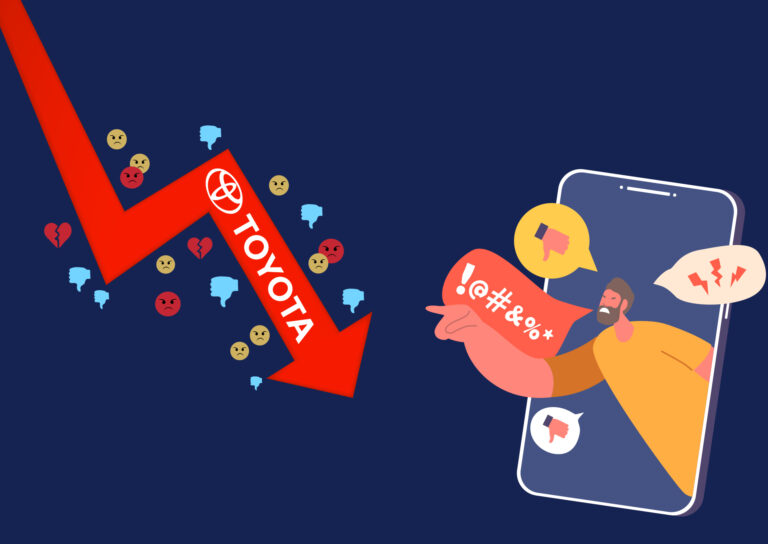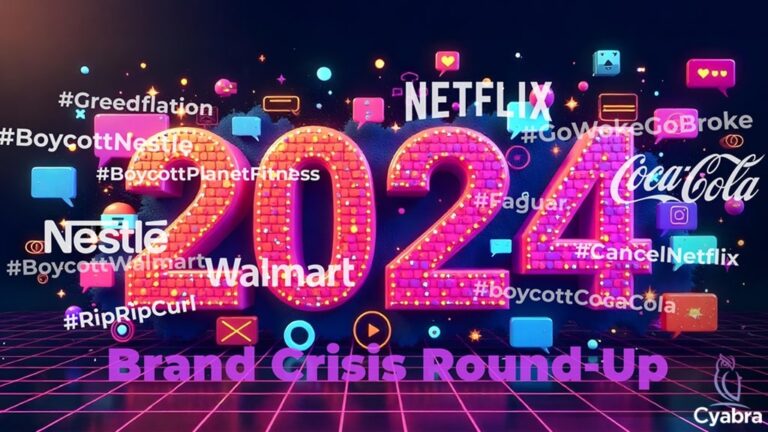Each month, our experts at Cyabra list some of the interesting articles, items, essays and stories they’ve read this month. Come back every month for the current misinformation, disinformation, and social threat intelligence news.
Meta Takes Down ‘Largest Ever’ Chinese Influence Operation
“The operation was the largest the company has removed in its history: on Facebook alone, Meta says it removed 7,704 accounts, 954 pages, and 15 groups linked to the effort to push pro-China talking points and attack the government’s critics. But its fingerprints extended beyond Facebook and Instagram, the platforms owned by Meta. The Chinese influence operation targeted at least 50 other platforms and apps, including YouTube, Reddit, Pinterest, TikTok, Pinterest, Medium, and X, the company formerly known as Twitter, according to Meta’s analysts.”
X (Twitter) to Collect Biometric Data from Premium Users to Combat Impersonation
“The social media behemoth told Bloomberg, which first reported the development, that the change is limited to premium users and that a biometric matching process “will also help X fight impersonation attempts and make the platform more secure.”
“This represents one of the thorniest, unresolved, challenges of our incipient artificial intelligence era, alongside issues like A.I. “hallucinations” and the difficulties of explaining certain A.I. outputs. According to many experts, the A.I. unlearning problem is on a collision course with inadequate regulations around privacy and misinformation: As A.I. models get larger and hoover up ever more data, without solutions to delete data from a model — and potentially delete the model itself — the people affected won’t just be those who have participated in a health study, it’ll be a salient problem for everyone.”
Are Your Ads Funding Disinformation?
“The global digital advertising industry is estimated to be $600 billion and growing. While Facebook and other social media sites are popular for advertising, much of the campaign spend dedicated to the internet is distributed across millions of websites and apps, and there’s little oversight and moderation from the adtech companies that monetize them. As advertisers handed off day-to-day operations to a bewilderingly complex digital advertising supply chain, companies often don’t know where their ads are ending up — including on sites that spew disinformation and hate-speech.”
YouTube to Prohibit False Claims About Cancer Treatments Under Its
Medical Misinformation Policy
“The update is just one of several steps YouTube has made in recent years to build out its medical misinformation policy, which also prohibits false claims about vaccines and abortions, as well as content that promotes or glorifies eating disorders. As part of the announcement, YouTube is rolling out a broader updated medical misinformation policy framework that will consider content in three categories: prevention, treatment and denial.”
Rumors and Conspiracy Theories: Authorities Try to Stamp Out Maui
Wildfire Disinformation
“After a crisis like this, trust in government really does suffer, and the only way to overcome that is for our public officials to deliver consistent messages, to deliver high quality services as quickly as possible,” said HNN political analyst Colin Moore. Meanwhile, Hoku Award-winning rapper and recording artist Thomas Ianucci took to his Instagram page, pleading with people to stop posting misinformation.”
Who Knowingly Shares False Political Information Online?
“Some people share misinformation accidentally, but others do so knowingly. To fully understand the spread of misinformation online, it is important to analyze those who purposely share it. Using a 2022 U.S. survey, we found that 14 percent of respondents reported knowingly sharing misinformation, and that these respondents were more likely to also report support for political violence, a desire to run for office, and warm feelings toward extremists.”
‘Don’t Stop Us Now’: Tribute Acts Protest Against Facebook Ban
“The sterling work of these professional tribute acts is now under threat. An unexpected blow to their business model was delivered when Facebook, now known as Meta, effectively banned their content from its site under rules that exclude the Facebook and Instagram accounts of anyone who could be described as “impersonating someone else”.”
An Alarming Pattern: Climate Disasters Hit, and Spanish–Language Misinformation Spreads
“Researchers reviewed the contents of about a dozen Spanish-language TikTok posts denying climate change and falsely insisting it’s a hoax. Some of the posts deny the need for action on climate change and even include references to a nonexistent secret weather control program at HAARP, which studies parts of the atmosphere and has long been the target of conspiracy theories and even flat Earth theories.”
Georgia Grand Jurors’ Personal Information Leaked Online After Trump Indictment
“The addresses were posted on a fringe site while jurors were specifically targeted on sites including Facebook, Tiktok, Truth Social and X, formerly known as Twitter. “These jurors have signed their death warrant by falsely indicting President Trump,” a post viewed by NBC News said.”
4 Threat Detection Techniques for Enterprises in a Changing Landscape
“When speaking of continuous monitoring, most cybersecurity teams think of security validation. While validation is a big part of security monitoring, restricting company activities to within its network is a big mistake. Companies must also secure their assets hosted on other networks, such as the internet. Website spoofing, for example, is on the rise.”
Ciso Tackles Banking Cybersecurity and Changing Roles
“In my organization, with today’s threats that involve hackers using social attacks to do account takeovers, my interest is now focused on bringing the cybersecurity and fraud organizations together. We’re already seeing an overlap in concerns. The two haven’t always been talking but, if we could put them together, we could manage risk better together. That is a vision for my organization, to bring them together to be more proactive instead of reactive. They need to be partners in their work.”


